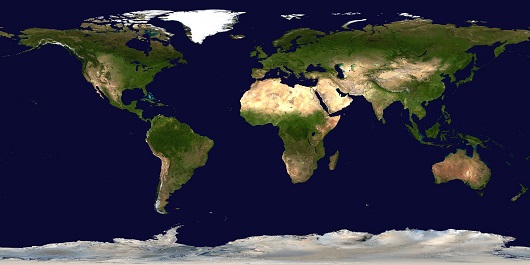A new international analysis of marine fossils shows that warming of the polar oceans during the Eocene, a greenhouse period that provides a glimpse of Earth’s potential future climate, was greater than previously thought.
A team of international researchers, led by academics at Yale University and the University of St Andrews, reveals that surface temperatures during the Eocene epoch, 56 to 34 million years ago, were significantly warmer than today, providing an insight into future climate change modelling.
The new study, published in Proceedings of the National Academy of Sciences this week, reveals that during the Eocene epoch, when atmospheric CO2 levels were much higher than at present, tropical oceans were estimated to be 30 to 36°C, around 6°C warmer than today. Moreover, while the whole planet warms when CO2 is higher, researchers found the degree of warming in the Polar Regions to be at least twice that in the tropics at this time.
This phenomenon of the Polar Regions warming to a greater degree than the tropics is termed ‘polar amplification’. By compiling these results together with a large amount of published data, the team found that polar amplification during the Eocene interval was more pronounced than previously thought.
The international team analysed fossil material from the Eocene epoch. At that time the atmospheric CO2 concentration was more than 560 parts per million, around 40% higher than today. It is the most recent interval in Earth’s history when CO2 was much higher than today.
By looking at the chemistry of micro-fossils preserved in Eocene sediments, researchers were able to produce more accurate estimates of tropical warmth in a high-CO2 world than previously possible.
The research team also investigated polar ocean warmth during the same interval, and found that the warming was even more pronounced – at least double that of the tropical oceans. Reconstructing the degree of warming during geological periods of elevated CO2 provides a way of testing our understanding of the Earth system and the accuracy of climate models.
Lead researcher, Dr David Evans, Leverhulme Research Fellow at the School of Earth and Environmental Sciences, University of St Andrews, said: “When we compare our results to climate model simulations of the Eocene epoch, we find that nearly all are unable to match these observations. In particular, the models underestimate the degree of polar amplification, which has possible implications for the accuracy of future climate predictions. This does not imply that climate models overestimate global warming. If anything, the opposite, they could be underestimating how much warming will occur in the Polar Regions.”















